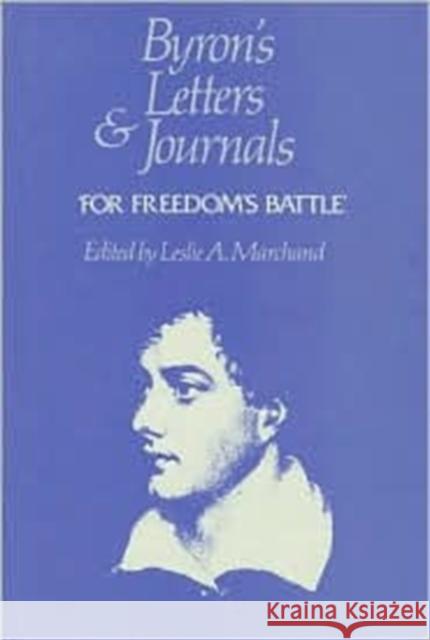Byron's Letters and Journals » książka
Byron's Letters and Journals
ISBN-13: 9780674089532 / Angielski / Twarda / 1981 / 252 str.
Byron's Letters and Journals
ISBN-13: 9780674089532 / Angielski / Twarda / 1981 / 252 str.
(netto: 431,71 VAT: 5%)
Najniższa cena z 30 dni: 447,12
ok. 16-18 dni roboczych.
Darmowa dostawa!
George Gordon Byron was a superb letter-writer: almost all his letters, whatever the subject or whoever the recipient, are enlivened by his wit, his irony, his honesty, and the sharpness of his observation of people. They provide a vivid self-portrait of the man who, of all his contemporaries, seems to express attitudes and feelings most in tune with the twentieth century. In addition, they offer a mirror of his own time. This first collected edition of all Byron's known letters supersedes Prothero's incomplete edition at the turn of the century. It includes a considerable number of hitherto unpublished letters and the complete text of many that were bowdlerized by former editors for a variety of reasons. Prothero's edition included 1,198 letters. This edition has more than 3,000, over 80 percent of them transcribed entirely from the original manuscripts. An enchanting epistolary saga ends with the publication of this volume. Volume XI, 'For freedom's battle', contains the letters Byron wrote from Greece between August 1823 and April 9, 1824, ten days before his death. Also included are over fifty letters dating from 1807 to 1820 that have come to light since Leslie A. Marchand began this project ten years ago. In the letters from Greece a new set of correspondents appears, and a new tone is apparent. Although occasionally playful, Byron is preoccupied with the revolution and his efforts to unite the Greeks in a common cause despite their discord. His chief correspondents are his business agents in the islands and his banker friend in Genoa, Charles Barry, to whom he writes frank accounts of daily affairs. His letters to Hobhouse and to John Bowring attempt to give a realistic picture of the Greek struggle. To Teresa Guiccioli he writes only short, dutiful postscripts in English to the longer letters addressed to her brother. Among the additional letters that became available too late to take their chronological place in the earlier volumes are those discovered in 1976, locked in a trunk at Barclays Bank; all but one of these fourteen letters were written to Scrope Davies, Byron's witty friend and drinking companion.











